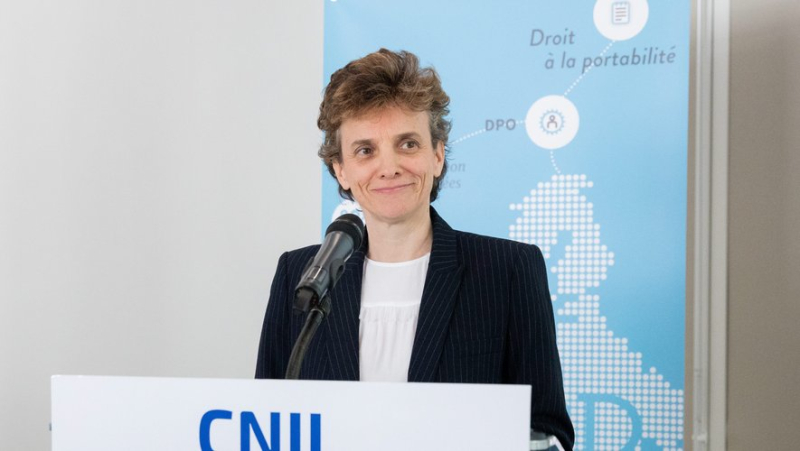Paris 2024 Olympic Games: “Our goal is to support this innovation”, artificial intelligence among the challenges for the CNIL

Marie-Laure Denis, président de la Cnil a fait un point avant les JO. MAXPPP – Christophe Morin
Paris Games, algorithmic video surveillance, rise of generative AI greedy for personal data: the president of the CNIL (National Commission for Informatics and Liberties), Marie-Laure Denis, recently reappointed for a second five-year term , discusses the challenges facing the French private life policeman over the coming months.
What role does the CNIL play in the organization of the Paris Games ?
All guarantees have been taken so that there is a good balance between the best possible protection of the French, the athletes and all the people who will be present in France at the ;occasion of this event, and at the same time respect for public freedoms, in particular for data which is used to access secure areas or in the context of ticketing, for example.
We are interested in data security because there may be sensitive data, for example law enforcement accreditation data, which may, if necessary, encourage malicious actions. We also ensure that only data is collected which is necessary for the purpose for which it is collected, and that it is not kept for too long.
What about experiments around algorithmic video surveillance, which uses smart cameras to monitor crowds ?
We devoted a lot of energy upstream to the problem of augmented cameras. This is the first time in France, and even in Europe, that cameras have been deployed that incorporate artificial intelligence to detect suspicious or dangerous behavior. For example, someone arriving in a prohibited area, a car traveling in the opposite direction, the start of a traffic light, a crowd movement… The consequences in terms of public freedoms are potentially more important since there are no more human limits, even if they are cameras whose purpose is to help with decisions.
They do not decide for the police. It's perhaps a little premature (for a first assessment, Editor's note) because the first experiment, which was in reality a configuration test and not a real exploitation, was the Depeche concert Fashion at the beginning of March (in Paris, Editor’s note). It is really at this moment that the first deployments of augmented cameras are taking place through another concert, a basketball match, in train stations too.
The CNIL has acquired an 'artificial intelligence service" in 2023. What role can the institution play in regulating AI, and in particular generative AI like ChatGPT ?
Our goal is to support this innovation. Not to slow it down but to support it from the outset with guarantees to the extent that AI consumes a considerable number of personal data. AI developers want to be able to keep this data for a long time but we tell them: "We understand but let's look at the different uses for which you keep it". We can try to keep them for as short a time as possible when it is not necessary. When it comes to protecting privacy, this is a very fundamental issue.
The CNIL will have an absolutely essential role to play in matters of AI since the data protection texts apply. I note that there are a certain number of institutions which have called for the CNIL to play an important role in regulating AI. It seems natural to me on a certain number of missions."




